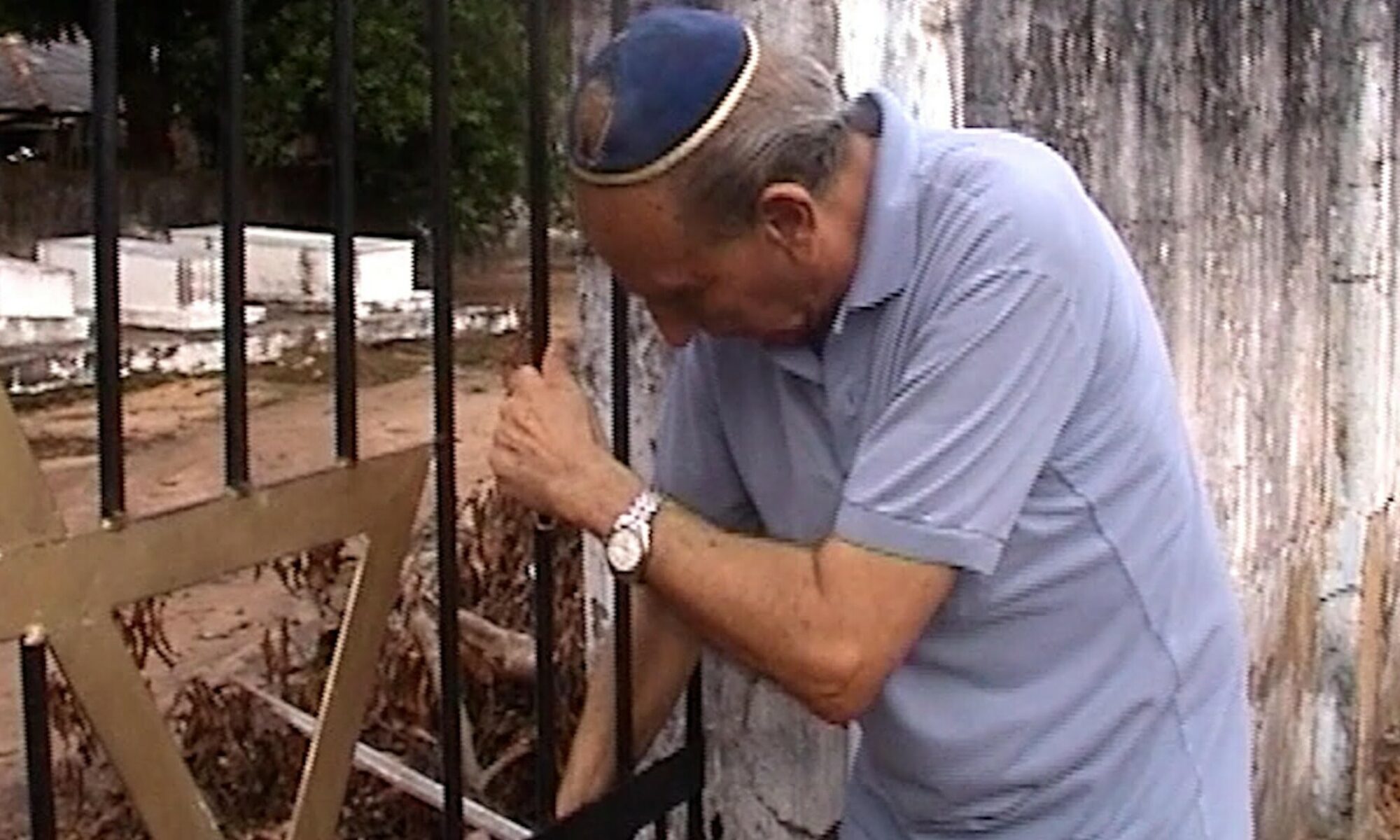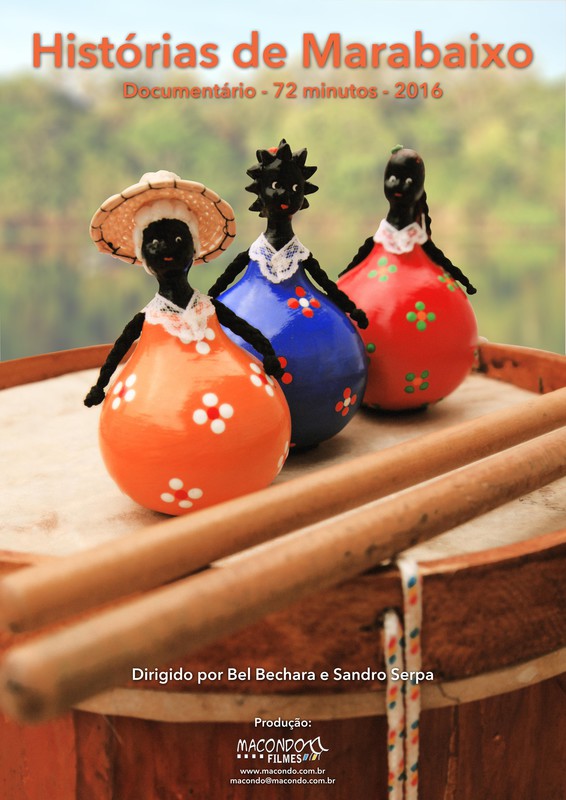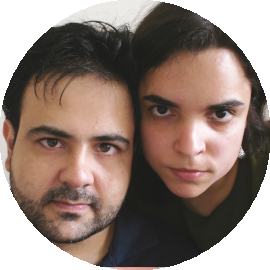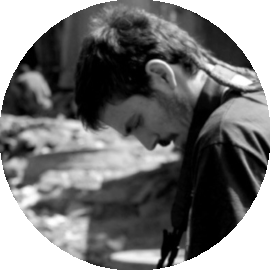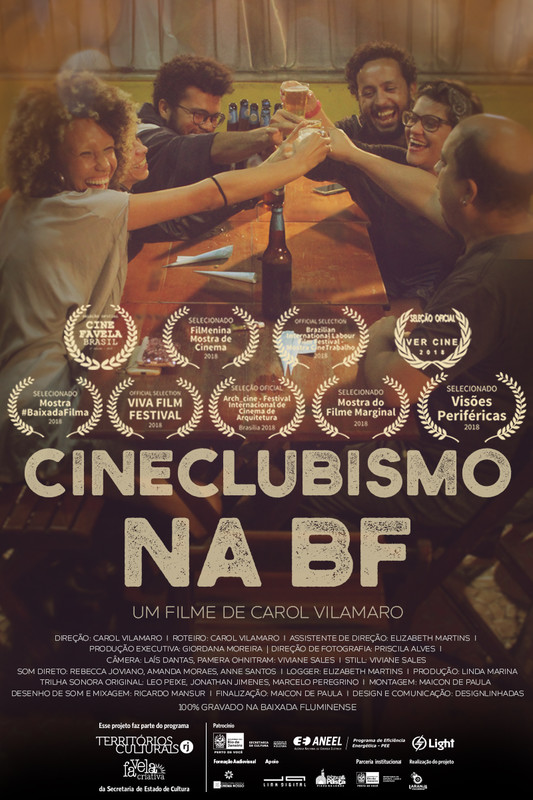 In Baixada Fluminense, independent cultural groups began a filmclub movement that brings cinema to the viewer. For over a decade, these film clubs have a massive role on the social upbringing of suburb regions and the starting of a dialog to change the day-to-day of these cities. This documentary shows the role of six of the major filmclubs in Baixada Fluminense; Cineclube Mate com Angu, from Duque de Caxias; Cineclube Buraco do Getulio, from Nova Iguaçu; Cineclube Donana, from Belford Roxo; Cineclube Cinema de Guerrilha, from São João de Meriti; Cineclube Xuxu com Xis, from Austin; and Facção Feminista Cineclube, from Duque de Caxias. These film clubs take movies to squares, to bars, to schools and to where else there is a place to show. Promote film clubs is preserve the possibility of gathering, of relating with another and the pleasure of share and motivate people.
In Baixada Fluminense, independent cultural groups began a filmclub movement that brings cinema to the viewer. For over a decade, these film clubs have a massive role on the social upbringing of suburb regions and the starting of a dialog to change the day-to-day of these cities. This documentary shows the role of six of the major filmclubs in Baixada Fluminense; Cineclube Mate com Angu, from Duque de Caxias; Cineclube Buraco do Getulio, from Nova Iguaçu; Cineclube Donana, from Belford Roxo; Cineclube Cinema de Guerrilha, from São João de Meriti; Cineclube Xuxu com Xis, from Austin; and Facção Feminista Cineclube, from Duque de Caxias. These film clubs take movies to squares, to bars, to schools and to where else there is a place to show. Promote film clubs is preserve the possibility of gathering, of relating with another and the pleasure of share and motivate people.
Fertile Land at Full Tide (Honouarable Mention)
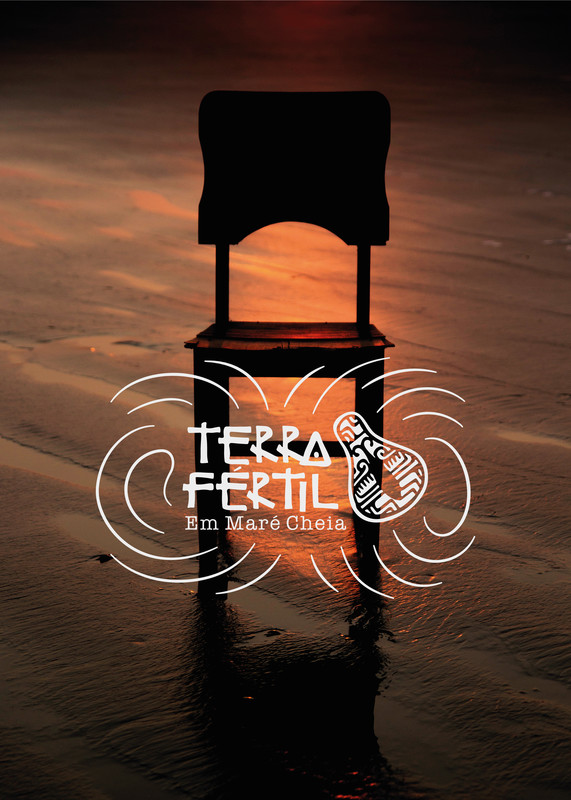 Birth is, in many peoples, a time of celebration and worship. However, over the years, the hospitalization of childbirth has destroyed many of the roots that linked us to the ancestral culture. The documentary discusses stories of women who exercised the profession of partaking and brought knowledge that goes beyond obstetric training, presenting birth in a natural and humanized way. The relationship between midwife and parturient, non-medical solutions, and spirituality appear as paths to female freedom while they represent a connection with the ancestry erased by time.
Birth is, in many peoples, a time of celebration and worship. However, over the years, the hospitalization of childbirth has destroyed many of the roots that linked us to the ancestral culture. The documentary discusses stories of women who exercised the profession of partaking and brought knowledge that goes beyond obstetric training, presenting birth in a natural and humanized way. The relationship between midwife and parturient, non-medical solutions, and spirituality appear as paths to female freedom while they represent a connection with the ancestry erased by time.
Hindu Eu
 ‘Hindu Eu’ is a documentary that explores the reality and space of the Portuguese Hindu community in the Radha Krishna Temple in Telheiras. The film accompanies a typical afternoon in this space, divided into three parts: the arrival in the temple gardens that transport anyone to a peaceful state of mind and retreat; a communion meal and community approach; and a worship ritual to the Gods that nothing stands behind an extrassensorial experience of sharing of love and peace.
‘Hindu Eu’ is a documentary that explores the reality and space of the Portuguese Hindu community in the Radha Krishna Temple in Telheiras. The film accompanies a typical afternoon in this space, divided into three parts: the arrival in the temple gardens that transport anyone to a peaceful state of mind and retreat; a communion meal and community approach; and a worship ritual to the Gods that nothing stands behind an extrassensorial experience of sharing of love and peace.
Goodbye Forever
Kabadio (Best Cinematoraphy)
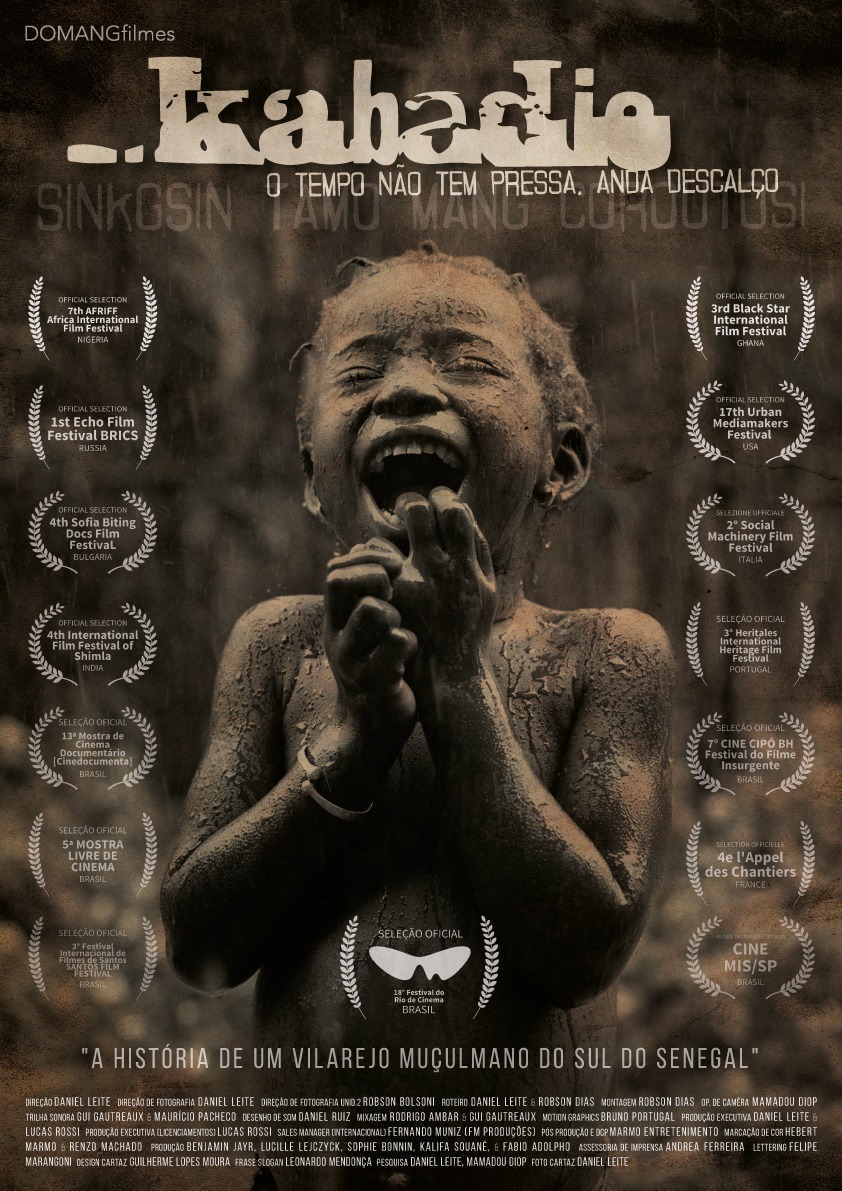 A deep dive into a new world, filled with rituals, music, magic, secrets, fascinating images and stories of real people who struggle to survive, keeping their traditions in the midst of a civil war and the smuggling of goods.
A deep dive into a new world, filled with rituals, music, magic, secrets, fascinating images and stories of real people who struggle to survive, keeping their traditions in the midst of a civil war and the smuggling of goods.
In the heart of Casamance (southern region of Senegal), a small Muslim village, which is a sort of mystical island protected by religious leaders called Marabus, the sound of drums lights the fire, dictating the fate of an uncertain future, where mysticism is the only protective shield.
We are in front of a large mirror. The mirror of the soul. Where you can touch the blowing wind; where you can feel the dried land under your feet just a few kilometers from the sea. Where you hear enlightened children’s laughing, spreading hope for those able to get close to them. Where time goes by slowly, barefoot.
KAYABIKE “Give us wheels, not wings”
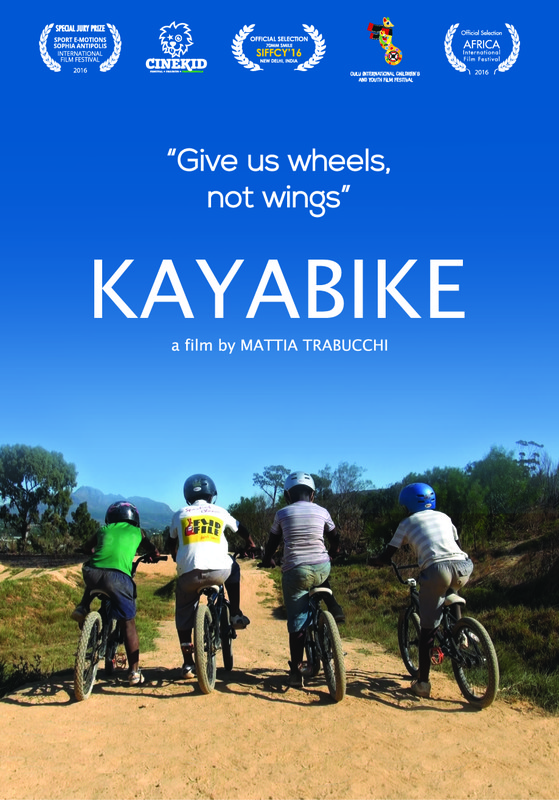 The life, hopes and dreams of a kids and their BMX coach training in a South African township (Kayamandi), waiting for competition day. Throughout the process they will learn much more than just how to pedal. Kayamandi is a suburb of Stellenbosch in the Western Cape province of South Africa located off route R304. The name means “nice home” in the Xhosa language, from khaya meaning “home” and mnandi meaning “nice”.
The life, hopes and dreams of a kids and their BMX coach training in a South African township (Kayamandi), waiting for competition day. Throughout the process they will learn much more than just how to pedal. Kayamandi is a suburb of Stellenbosch in the Western Cape province of South Africa located off route R304. The name means “nice home” in the Xhosa language, from khaya meaning “home” and mnandi meaning “nice”.
KAYABIKE explores the use of biking as a way of personal development in the context of this South African suburb.
The Way of the Shaman Drum (Best Short Documentary)
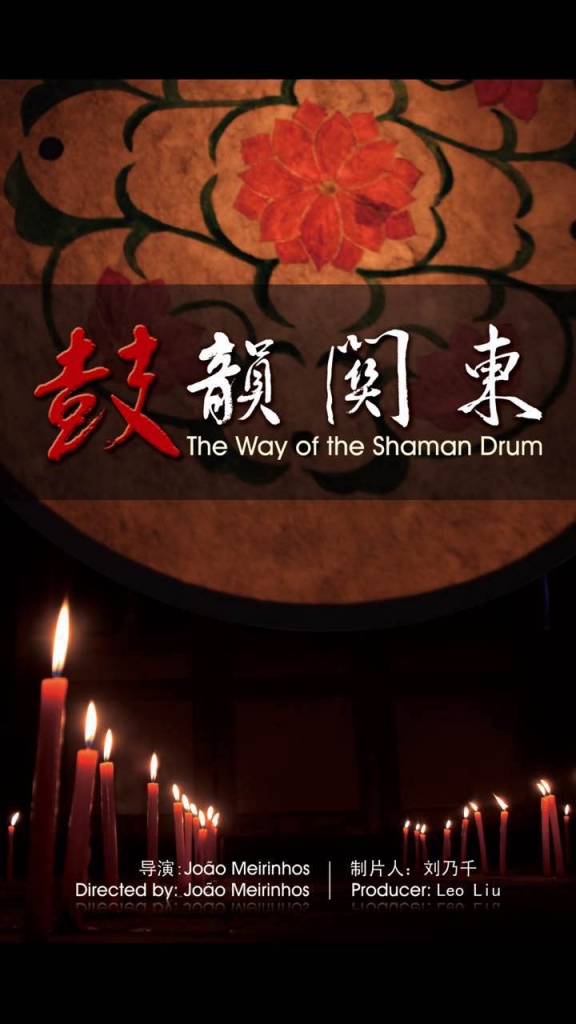 The spiritual aspects of Shamanism are inured in mystery and some believe Shaman doctors and healers can tell the future and ward off demon spirits during special dance ceremonies. Nonetheless in the film, The Way of the Shaman Drum, the director João Meirinhos, provides viewers with a earthlier and pragmatic account of those involved in Shaman Culture as Manchu-ethnic minorities living in northeastern China’s Changbai Mountain, Jilin Province. 70-year-old Guan Yunde, a promoter of Manchu’s Shamanism culture, works alongside a business partner and has designed and built Shaman drums. He has unearthed Shamanism’s mysteries. Shamans hold animals dear to their hearts and sustain a polytheistic faith, meaning that all living beings, including animals, have a spirit and are god-like. Hence, in northeast China alone, they worship the god of tiger, god of wolf and so on. Shamanism is more about loving nature and ancient Manchu culture than with participating in so-called demon spirit dances. Guan lived in a home with many generations of Manchu ancestors, while his father was recognized as a tribal leader. They used kiwi wood to make Shaman drums, since it displays few defects when carving. For some people, Shamanism is perceived as evil, but for the Manchu-ethnics, such as Guan Yunde, it’s simply a proud part of the Manchu culture that deserves to get passed down to future generations.
The spiritual aspects of Shamanism are inured in mystery and some believe Shaman doctors and healers can tell the future and ward off demon spirits during special dance ceremonies. Nonetheless in the film, The Way of the Shaman Drum, the director João Meirinhos, provides viewers with a earthlier and pragmatic account of those involved in Shaman Culture as Manchu-ethnic minorities living in northeastern China’s Changbai Mountain, Jilin Province. 70-year-old Guan Yunde, a promoter of Manchu’s Shamanism culture, works alongside a business partner and has designed and built Shaman drums. He has unearthed Shamanism’s mysteries. Shamans hold animals dear to their hearts and sustain a polytheistic faith, meaning that all living beings, including animals, have a spirit and are god-like. Hence, in northeast China alone, they worship the god of tiger, god of wolf and so on. Shamanism is more about loving nature and ancient Manchu culture than with participating in so-called demon spirit dances. Guan lived in a home with many generations of Manchu ancestors, while his father was recognized as a tribal leader. They used kiwi wood to make Shaman drums, since it displays few defects when carving. For some people, Shamanism is perceived as evil, but for the Manchu-ethnics, such as Guan Yunde, it’s simply a proud part of the Manchu culture that deserves to get passed down to future generations.
Marabaixo Stories (Best Story 2018-19)
Sounds of Kibera
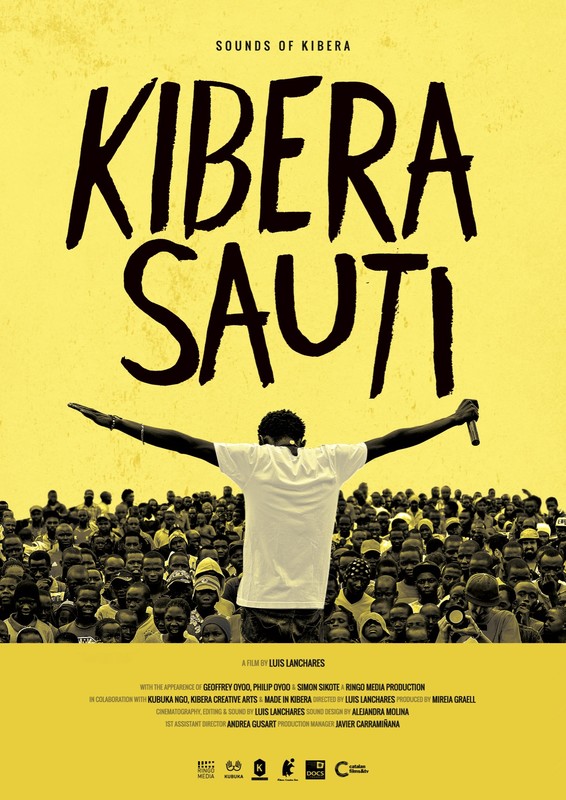 In Kibera (Nairobi), one of the biggest slums of the world, Simon, Philip and Geoffrey have created the collective MADE IN KIBERA (MIK). Their goal is to unite the numerous artists of Kibera and provide them with a space inside the tough conditions of the slum where they can grow. MIK is constructing a professional music and video studio that will help the local artists record their work in higher quality and, in order to promote it, they are preparing a massive event that is already bringing together all Kibera artists.
In Kibera (Nairobi), one of the biggest slums of the world, Simon, Philip and Geoffrey have created the collective MADE IN KIBERA (MIK). Their goal is to unite the numerous artists of Kibera and provide them with a space inside the tough conditions of the slum where they can grow. MIK is constructing a professional music and video studio that will help the local artists record their work in higher quality and, in order to promote it, they are preparing a massive event that is already bringing together all Kibera artists.
